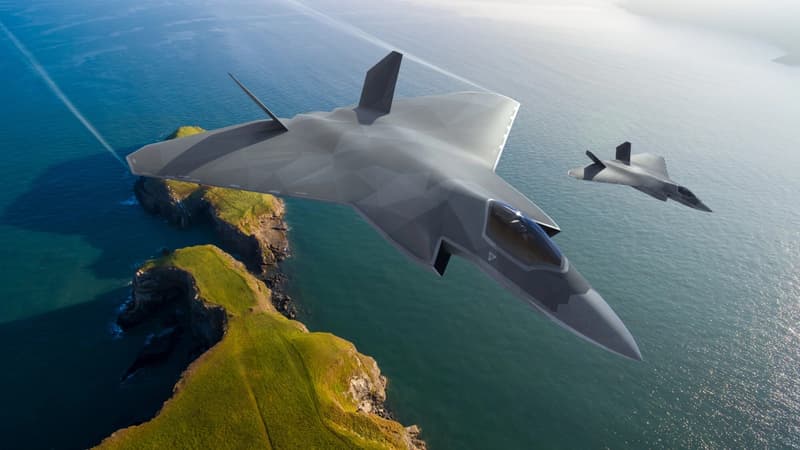Europeans once again in dispersed order. Although Americans sell amounts of their F-35 Lightning II combat plane (more than 1,000 have already occurred) of which a good part in the old continent, Europeans do not agree on a unique proposal.
In addition to the current Dassault rafale, two other projects are in the boxes: the SCAF whose future seems compromised and the storm.
If the Franco-German-Spanish project of the future air combat system never stops crossing the turbulence areas, the other European combat aviation project, led by the United Kingdom, Italy and Japan, is not better.
The British National Agency responsible for the transformation of infrastructure and services (NISTA) has labeled the GCAP program (Air Air of Global Combat Program) in red, the lowest rating of the evaluation authority.
The criteria of this red label refer to a program whose success “seems impossible” and whose global viability is not guaranteed.
If a “significant progress” has been made in the realization of the program, the Nista points out that “the program is still only in her childhood and the scope of the challenges they will face to implement a program of this scale is widely accepted.”
The future competitor of the SCAF
Also nicknamed, the combat aviation program of the sixth generation combines the British, Italian and Japanese industries, in a set created last June, called Edgewing and which brings together Bae Systems, Leonardo and Japan Aircraft Mealida, a subsidiary of Mitsubishi.
The objective is to provide the British, Italian and Japanese air forces, for 2035, a new combat plane, sensors and associated armaments, as well as accompanying drones.
The development calendar is ambitious: manufacturers are aimed at a first demonstrator flight, to test the concept and certain technologies, in 2027. It will be equipped with two Eurofighter engines, waiting for the future reactor developed by Rolls-Royce.
Delays and disagreements
If, on paper, the GCAP seems to advance better than the SCAF, which faces immense difficulties in terms of industrial exchange, the fact is that the trinational program also makes dissension costs. Already at the end of 2023, Sweden, and therefore the manufacturer Saab had announced its withdrawal from the program.
More recently, Reuters reported the words of the Italian Minister of Italian Defense Guido Crosetto, complaining last April because the United Kingdom does not completely share his own technologies with the program members.
Italy was also quite favorable to the participation of Saudi Arabia in the project and Japan had shown some signs of openness on this subject, but nothing is formally validated among the different parts. The recent statements of a BAE systems official, transmitted by Reuters in mid -July, also questioned the possibility of integrating an additional country, discussing the delays and additional costs that such a decision would be.
Source: BFM TV


